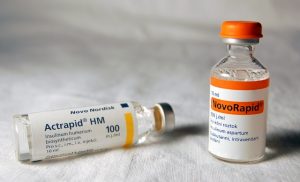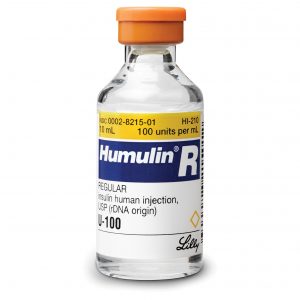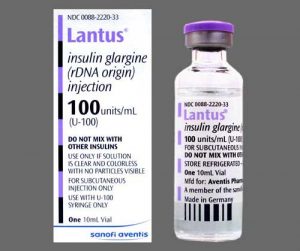Insulin History and Overview:
When it comes to hormones and supplements that are ustilized for maximum aeffect, one of the most popular kinds in the professional bodybuilding circles as well as medical circles is insulin. It has a tremendous amount of benefits that can help people in so many ways, but despite this fact, there are those that take matters into their own hands and use the likes of insulin to maximize gains and make muscle-related strides that just wouldn’t be possible otherwise.
It should be noted that compared to other sorts of hormones, insulin is extremely powerful. Given that it’s an anabolic, it can create tissue rather easily, but it should be noted that it is used exogenously by those that cannot normally produce it, but when it is used by athletes, it’s strictly for the purpose of building lean tissue. It is a very dangerous hormone when abused, so any use, recreational or otherwise should be strongly cautioned regardless of the circumstances.
Similar to the use of injectable testosterone and other hormones, the first synthesized examples of insulin use were back in the 1920s. Back then, most insulin was extracted from the pancreases of cattle and dogs. One of the major issues, however, was the fact that these samples were often not very pure, making purity control a problem that could have dire consequences. But regardless of purity issues, people were willing to risk infection or death during this time period. Insulin treatment was often the only recourse people with diabetes had, and of course, diabetes without insulin treatment can mean terrible health issues and even death. This is primarily why by the 1970s, when the purity issues with insulin were solved, it was a major milestone for not only insulin but other exogenous treatments in general. Starting in the mid 1970s, synthetic insulin would be introduced to the scene by a company called Ciba. By 1982, the famous Humulin-R synthetic insulin was made, and it was a perfect facsimile for human-made insulin, and it immediately got FDA approval and has been a staple in diabetes treatment ever since.
Insulin Functions and Actions:
Insulin works in a few very easy ways. For one, it works to prevent the metabolic breakdown of glycogen, fat, and protein. Since it’s considered a peptide hormone, it works to regulate and utilize glucose, fatty acids, and amino acids. It is produced by the pancreas and is considered to be a peptide hormone.
When it comes to those that suffer from diabetes, there are three kinds that result in the need for insulin supplementation. It’s important to keep these in mind, because all too often, it’s assumed that diabetes by default means someone needs insulin supplementation from exogenous sources. For those with Type 1 diabetes, these are individuals that have a pancreas that simply can’t produce enough insulin on its own to supply the body with adequate insulin. Another kind of insulin is Type 2 diabetes. This one is frustrating in particular because the body can still produce insulin, and maybe in some cases enough of it, but the receptor sites for the insulin simply don’t work, meaning that it has to be supplemented from an outside source. This means that exogenous, injected insulin is the only way it can be synthesized in the body of an individual with Type 2.
As far as being a peptide hormone, when it’s secreted by the pancreas, insulin works with the liver to stimulate the creation of glycogen and then convert it into glucose. Anything else that isn’t a glucose is inhibited, however, and it is here where the insulin works to really to spread the glucose around in the cells, which will, in turn, lead to muscle growth. Higher levels of insulin are also linked to protein synthesis, which is another incredibly valuable part of the muscle-building process in the body. Insulin being in high concentrations within the body also leads to higher levels of bone density, and it can also lead to higher concentrations of a peptide called IGF-1, which is an acronym for Insuline-like Growth Factor 1. It is incredibly anabolic, and it is structured very similarly to insulin, hence its name.
As far as some additional benefits of high concentrations of insulin, it can also lead to higher levels of luteinizing hormone, and it can even crate more follicle stimulating hormone. With the increased levels of the aforementioned hormones, it can essentially be linked to higher levels of testosterone. This means that despite its relatively unknown reputation as a performance enhance among casuals, there are a tremendous amount of benefits it has as a hormone, and it can definitely increase the performance of those looking to use it effectively.
Effects of Insulin:
No matter what sort of diabetes you might have, the essential outcome of insulin supplementation is that it results in controlling blood sugar. That’s the primary function of those individuals. However, for those using it in other arenas, they like it because insulin is also very good at promoting anabolism and staving off catabolism. That said, insulin being used in higher amounts in the body can lead to higher levels of visceral body fat, and if you’re really irresponsible with it, you can actually die from insulin.
Even though the hormone is tremendously risky, many athletes aren’t deterred. They are willing to run the risks insulin brings just to enjoy its effects, albeit sometimes detrimental due to its fat-causing properties. This is why the worthwileness of insulin greatly dips if the body fat levels aren’t properly controlled. The reason for this can be simplified as thusly: when insulin levels are very high, the body’s ability to regulate bodyfat just doesn’t work as well, primarily because the body’s natural fat-burning abilities are a little bit sabotaged. If someone is planning to supplement with insulin, they have to be very methodical and planned-out in terms of their dieting and nutrition. If any of the proverbial boxes are not checked, there are going to be major issues with insulin. As far as macronutrients go, fat intake should be heavily restricted because the margin for error is very, very slim. By doing this, the body will be more inclined to store the nutrients in muscle rather than other kinds of tissue.
When you do plan to take insulin, it should always be done following an intensive weight-lifting section, and it should always be accompanied with food but more on this later.
Because insulin has incredibly anabolic properties, you can build a lot of muscle mass in a relatively short span of time thanks to how great insulin is at promoting greater levels of muscle-building. Other than just using insulin, you can also stack it with other kinds of compounds that will lead to tremendously synergistic effects that will really enhance overall structural enhancement.
Side Effects of Insulin:
The primary side effect associated with insulin supplementation is hypoglycemia, this is when there is too mcuh insulin inside of the body. For those with diabetes, it isn’t really that big of a deal since the pathology is different, but inside of a non-diabetic individual, it can be incredibly dangerous. This is why it’s very, very bad for those in athletic settings to use it because this sort of condition cannot only lead to major health issues and complications, but most permanently, it can lead to death. By itself, it doesn’t sound that bad, but the more you realize that there are other complications to be had from hypoglycemia, then one realizes why it’s a major issue if it happens. This happens when blood glucose levels take a nose dive. There are a lot of symptoms assoicated with it, but some of the most prominent ones involve dizziness, depression, drowsiness, hunger, and a myriad of other explcitly manifested symptoms.
For the average person, these might seem rather vague, but if you’re using insulin in a performance setting, then any of these symptoms happening and standing out to you should trigger an immediate warning in your head. Because blood glucose is super low, a great way to dealwith it is to consume a drink or food item that is very sugary. This will ensure rapid absorption, and it will also ensure that if it is absorbed, it will be taken in rather quickly. No matter what happens, by no means should you ever go to sleep after feeling these symptoms. What could happen is that in your sleep you’ll enter a hyperglycemic state, and this is extremely dangerous. Aside from that, but assuming you want to deal with these issues, you won’t be able to because you’re a assleep. ANd it’s entirely possible that as the symptoms get worse and your hypoglycemic state worsens, you may not be able to fix it by waking up in time, thus leading to an easily-prevented death. It’s also always a good idea to have somone observing you take the insulin, that way they can assist you should anything go wrong.
Most people are still curious about knowing just how bad a severe case of hypoglycemia is. It should be noted that in very bad cases, you can actually fall into what is known as a diabetic coma, and once this happens, very often do people not escape from it. Aside from the effects associated with hypoglycemia, it is also possible to experience things like rashes, irritation, increased heart rate, shortness of breath, and a myriad of other problematic issues. One of the strangest and most unfavorable of side effects is the fact that sometimes it is possible for there to be an increase in adipose fat tissue. This happens in some individuals and produces what is often attributed to HGH as an “HGH-gut.” But actually, it’s the buildup of this fat because of the insulin use. In some extreme cases, large masses of adipose fat tissue can form.
Insulin Administration and Uses:
If you’re someone that has Type 1 or Type 2 diabetes, the precise administration is not really available for the general populace. It varies on a case by case basis, so whatever your medical professional advises, that is the amount of the hormone that you should supplement with. For athletes, a similar protocol exists. It really depends on a case by case basis, and when you do plan to use insulin, it should be something that is fast-acting like Humulin-R, Novolog, and others.
For example, an insulin like Humalog will immediately kick in after only 15 minutes post-injection. It will then take about half an hour to an hour for the peak effects of the insulin to be noticed, and you should notice the activity for about 3-5 hours. Humalog is your fastest option, and the other two aforementioned options are similarly fast-acting, but they are slower, with Humulin-R being the slowest one. Many of these insulins, like Humalog, require a prescription to buy, but if you want to buy something like Humulin-R, you can buy it without a prescription and can get it over the counter. Because it’s the one that most athletes have access to, we are going to base the doses provided henceforth based on these protocols.
For starters, the most basic dose you’ll want to start with for strictly performance purposes is 1iu for 10 pounds of body weight. So if you weight 170 pounds, you’ll want 17ius total. However, given the voltatility of using insulin, it’s a good idea to start, very, very conservative. We recommend starting with sometihg nlike 1iu a day, and after a little while to assess tolerance, increase the dossage by one iu per day to see what happens. If you start to notice the symptoms of hypoglycemia, then you know that your dosage is way to high and you’ll need to cut back on them. But the truth is, given how agonizingly difficult it can be to properly tune up your insulin doses, most men will never use or even need the “full” dose of insulin.
Once you figure out your dosing protocol, then comes the timing of things. You’ll want to time your injection with yourself following your workout, specifically weight bearing exercises. Once you inject it, you’re going to need about 100g of carbs. Once injected, you’ll want to immediately consume your carbs, whether they be in liquid or solid form. You’ll also want to try and get about 40-50 grams of protein down the hatch alongside your carbs. The 100 grams of carbs number should be a baseline, it should be noted that as your dosages of insulin increase, so too should your amount of carbohydrates because a lot of men will need a lot more than just a 100 grams of carbs. But remember, insulin isn’t needed in massive doses to have a substantial effect, too much can simply lead to issues with hypoglycemia, so keep that in mind when using it.
It’s also important to keep a lot of simple carbohydrates within arms reach when you use your insulin. These sugary substances will combat hypoglycemic symptoms, and they should be taken as soon as anything starts to show in terms of bad side effects, but even if you choose to not use them, be sure that you have another meal relatively soon after your first “post insulin injection” meal.
Availability of Insulin:
Because of the importance of insulin for many people, it’s easy to find it over the counter in the event that someone diabetic needed it for emergency purposes. That’s why Humulin-R is available everywhere, even in the United States. There are examples of low-grade copies of it on the black market, but these are few and far between. Also, as far as cost is concerned, it’s much cheaper than a lot of other supplements on the market.
Buy Insulin Online and Legality:
As far as legal concerns go, there are a lot if you choose to buy insulin online. However, it makes absolutely no sense to buy insulin online given how plentiful it is in the local markets. However, even if you were to purchase insulin, there might be issues with some the courts, even those internationally.
However, due to the amount of diabetic patients worldwide, various Insulin preparations are common and sold widely in pharmacies.
But overall, insulin is a tremendously studied and practical supplement that, when managed properly, does a lot more good than harm, even by those who abuse it or use it for non-diabetic purposes. It is a favourite of bodybuilders and athletes looking to stack it with their other supplements, simply using insulin in very low doses.
Insulin Pictures:

Novo Rapid Fast Acting Insulin (Novo Nordisk)

Humulin R Lilly

Lantus Insulin 100ui/ML (Sanofi Aventis)





